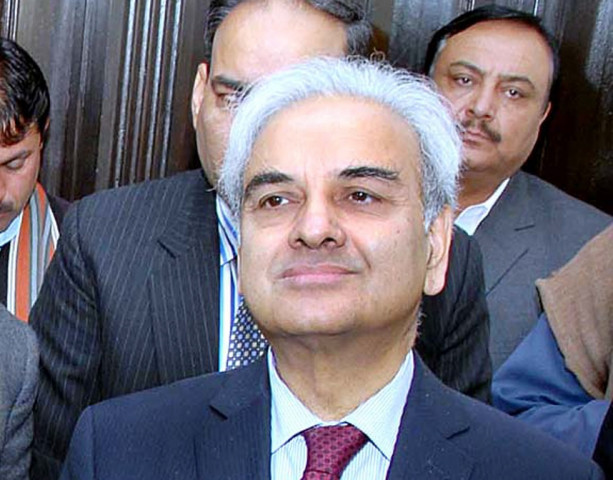Waiting in the wings: Incoming CJ vows to resist ‘undue interference’
Justice Nasirul Mulk spells out his policies during his upcoming tenure of 13 months.

On the eve of Chief Justice Tassaduq Hussain Jillani’s retirement, his successor in the job Justice Nasirul Mulk laid out a blueprint for his 13-month tenure which would be based on judicial restraint rather than judicial activism.
Addressing the Supreme Court’s full court reference on Friday, Justice Nasir reiterated his pledge to resolve the miseries of ordinary litigants, as well as avoid unnecessary interference in the affairs of other institutions during his tenure.
Justice Nasir appealed for harmony between institutions, saying it is their constitutional duty to desist from undue interference in the functioning of other pillars of the state. “If institutions do not respect the trichotomy of power, we fear that the rights of the people will be violated and disregarded.”
“Courts may undertake judicial review and step in when the executive and legislature acts ultra-vires of the Constitution,” said Justice Nasir.
He asked lawyers to assist the court to minimise problems faced by ordinary litigants by curbing undue delays.
“Over the last six months, we have already decided more than half of the criminal cases pending before this court and we hope that by the summer of 2015 a backlog of criminal cases will be completely wiped out,” he said. The incoming CJP said a similar effort is being planned in order to tackle the backlog of constitutional, civil, service, revenue and other cases.
Speaking with The Express Tribune, senior lawyer Tariq Mahmood commented that an improvement in the discipline of the apex court’s proceedings is likely to be seen under Justice Nasir, while the number of prisoners is likely to decrease in the country’s jails as criminal cases are disposed of.
Justice Nasir said that the rights of minorities in Pakistan have been neglected by policymakers over the years. “We need to remind ourselves that judges have to administer justice in accordance with the law and not according to a personal sense of justice, as predictability and certainty are defining features of a sound judicial system,” Justice Nasir said.
Meanwhile, addressing the full court reference, outgoing CJP Jillani said that no democracy can endure if constitutional pledges and values do not bring about a positive change in the lives of the people and a constitutional culture is not nurtured.
“The SC may exert its constitutional authority to bolster democracy and to guard against the subversion of constitutional values while avoiding an unseemly clash between institutions.”
Justice Jillani also reiterated that the apex court must strike a balance between liberty and security. “The challenges faced by the judiciary during the last few years have recharged the judiciary and it has emerged as an active pillar of the state,” he said.
Published in The Express Tribune, July 5th, 2014.



















COMMENTS
Comments are moderated and generally will be posted if they are on-topic and not abusive.
For more information, please see our Comments FAQ